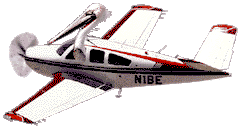You are using an out of date browser. It may not display this or other websites correctly.
You should upgrade or use an alternative browser.
You should upgrade or use an alternative browser.
shock cooling
- Thread starter blueflyer
- Start date
Marc_J._Zeitlin
Active Member
The fact that you have the "shock cooling" turned on at all. If you don't have a turbocharger, there's no such thing as "Shock cooling a NA engine", so turn off that alarm and the alarms will stop.I have a D120 and in cruise flight I will get a constant "Shock Cooling" alarm. CHT's are steady during cruise flight. Shock Cooling sensor is set for a 50 degree change. What is causing this?
I respect your opinion, but here is what Lycoming has to say: Sudden cooling is detrimental to the good health of the piston aircraft engine. Lycoming Service Instruction 1094D recommends a maximum temperature change of 50˚ F per minute to avoid shock cooling of the cylinders.
Just curious as to why my D120 constantly says "shock cooling" while in cruise flight and the CHT's are steady.
Just curious as to why my D120 constantly says "shock cooling" while in cruise flight and the CHT's are steady.
Marc_J._Zeitlin
Active Member
I won't comment on whether Lycoming understands the engines that they build particularly well, or science, but here are three references wrt shock cooling:I respect your opinion, but here is what Lycoming has to say: Sudden cooling is detrimental to the good health of the piston aircraft engine. Lycoming Service Instruction 1094D recommends a maximum temperature change of 50˚ F per minute to avoid shock cooling of the cylinders.

Aviation Myths, Part 2
Part two of the aviation myths series continues as I examine misconceptions about maintenance, shock-cooling, 40-hour minimums, stalls, and tailwheels.
www.rapp.org

Shock Cooling: Myth or Reality?
Powerplant management guru Kas Thomas of TBO ADVISOR examines the physics and metallurgy of "shock cooling" and concludes that, contrary to the conventional wisdom, it is not a major contributor to cylinder head cracking.
 www.avweb.com
www.avweb.com

Pelican's Perch #36:Those Fire-Breathing Turbos (Part 6 - and FINAL!)
AVweb's John Deakin concludes his six-part powerplant management series with a discussion of the procedures he uses during descent, approach (including missed-approach), landing, and shutdown. In the process, he debunks some Old Wives' Tales about "shock cooling" and turbocharger cooldowns.
 www.avweb.com
www.avweb.com
There are just too many counterexamples for NA engines to have shock cooling issues. They just don't.
Probably some momentary short or open circuit in the CHT wiring that causes the unit to believe that the CHT's have changed substantially in a very short period of time. Since there's no need for the alarm, turn it off, or record the data from the unit and look for the glitches in the CHT's that indicate large temperature swings that can't actually be real.Just curious as to why my D120 constantly says "shock cooling" while in cruise flight and the CHT's are steady.
Concur. As John Deakin and others point out, if there were such a thing as shock cooling, flying through rain would cause serious damage to your engine. Mechanics are prone to assign a cause to a problem with no data to support that conclusion. Engine temperature changes much faster when you throttle up for take-off, than it ever can on the cooling side. If you advance throttle too fast you can glaze lead compounds on the plugs, and likely cause issues with the cylinder heads that are going from 150 degrees to over 300 in the time it takes you to get airborne.I won't comment on whether Lycoming understands the engines that they build particularly well, or science, but here are three references wrt shock cooling:

Aviation Myths, Part 2
Part two of the aviation myths series continues as I examine misconceptions about maintenance, shock-cooling, 40-hour minimums, stalls, and tailwheels.www.rapp.org
Shock Cooling: Myth or Reality?
Powerplant management guru Kas Thomas of TBO ADVISOR examines the physics and metallurgy of "shock cooling" and concludes that, contrary to the conventional wisdom, it is not a major contributor to cylinder head cracking.www.avweb.com

Pelican's Perch #36:Those Fire-Breathing Turbos (Part 6 - and FINAL!)
AVweb's John Deakin concludes his six-part powerplant management series with a discussion of the procedures he uses during descent, approach (including missed-approach), landing, and shutdown. In the process, he debunks some Old Wives' Tales about "shock cooling" and turbocharger cooldowns.www.avweb.com
There are just too many counterexamples for NA engines to have shock cooling issues. They just don't.
Probably some momentary short or open circuit in the CHT wiring that causes the unit to believe that the CHT's have changed substantially in a very short period of time. Since there's no need for the alarm, turn it off, or record the data from the unit and look for the glitches in the CHT's that indicate large temperature swings that can't actually be real.
Lycoming also opposes operating LOP contrary to their own data graphs and more than 20 years of data proving it can be better for the engine than operating rich of peak.
Kelly
A&P/IA
@blueflyer I don't have a solid reason why you are getting the alarm when CHTs are steady. But here's my first question. What are your CHT readings in cruise? If you must have that alarm, and you haven't already try switching your Alarms to "SELF-CLEARING" instead of "LATCHING" to see if that helps. If that does not work, try increasing the shock cooling senor to 100°. I too am mindful of rapidly cooling the cylinders on descent, but elect to just monitor the CHTs instead of enabling the "SHOCK COOLING" alarm feature.I have a D120 and in cruise flight I will get a constant "Shock Cooling" alarm. CHT's are steady during cruise flight. Shock Cooling sensor is set for a 50 degree change. What is causing this?
